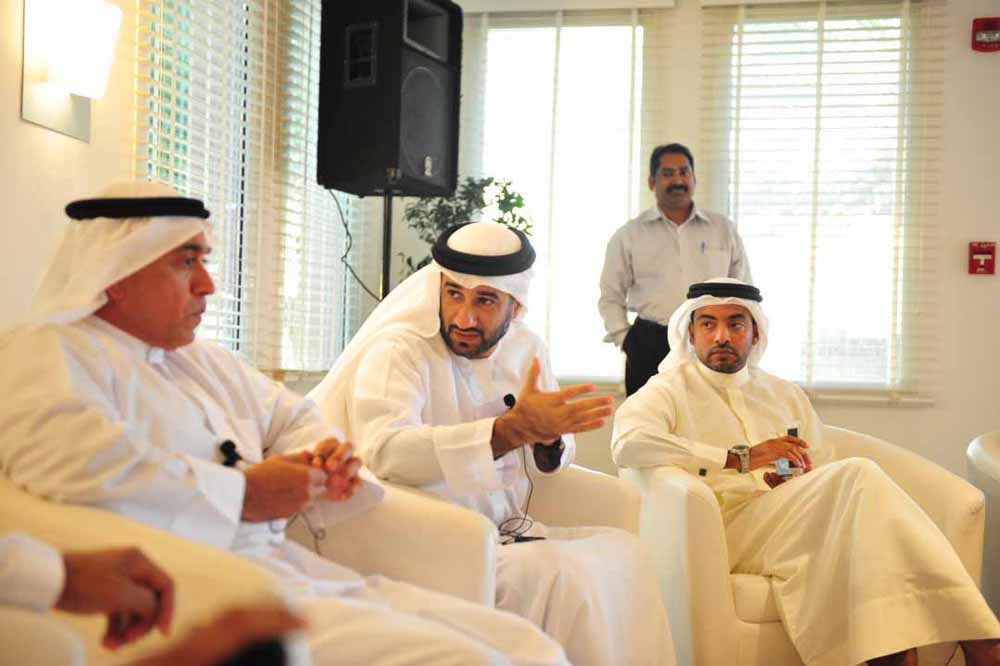Dubai To Rank Among World’s Top Happiest Cities In 10 Years
By admin Thursday, 12 February 2015 3:26 PM

Dubai’s smart city agenda will help it become of the happiest cities in the world within the next 10 years, a senior official said during the Government Summit on Tuesday.
Ahmed Bin Byat, CEO of conglomerate Dubai Holding, said that he is confident the city’s drive to provide smart services will help make it happier place.
“Creating happiness is the final result of the smart city agenda. Once we are able to manage and meet people’s experiences, we will be able to rise on the happiness index,” he said.
The issue is specifically pertinent to places like Dubai and Abu Dhabi which are labour importing cities.
“We need to be innovative otherwise productivity will drop. We have to make sure that we attract the right talent and investment and that will not happen if our cities are too expensive, or if there are bureaucratic hurdles,” he explained.
Dubai is currently in the process of implementing Plan 2021, launched late last year by UAE VP and PM and Dubai Ruler Sheikh Mohammed bin Rashid Al Maktoum.
Sheikh Mohammed said at the time: “The first objective for the Dubai Plan 2021 is achieving people’s happiness. We have full confidence in those responsible to fulfill this goal.”
In October last year, Sheikh Mohammed also launched a public happiness index to measure people’s satisfaction with government services.
The UAE ranks 130 among 151 countries measured on the Happy Planet Index, although it ranks 16th worldwide for ‘experienced well-being’, one of the criteria used to rank the world’s happiest countries.
Dubai To Rank Among World’s Top Happiest Cities In 10 Years
The emirate's smart city agenda will help it rise on the happiness index, said Ahmed Bin Byat, CEO of conglomerate Dubai Holding.
Dubai’s smart city agenda will help it become of the happiest cities in the world within the next 10 years, a senior official said during the Government Summit on Tuesday.
Ahmed Bin Byat, CEO of conglomerate Dubai Holding, said that he is confident the city’s drive to provide smart services will help make it happier place.
“Creating happiness is the final result of the smart city agenda. Once we are able to manage and meet people’s experiences, we will be able to rise on the happiness index. It is vital because if people are not happy, they don’t stick around in the city, they leave,” he said.
The issue is specifically pertinent to places like Dubai and Abu Dhabi which are labour importing cities.
“We need to be innovative otherwise productivity will drop. We have to make sure that we attract the right talent and investment and that will not happen if our cities are too expensive, or if there are bureaucratic hurdles,” he explained.
It is also crucial to plan the smart city strategy right and a key challenge is bringing all the networks together, Byat admitted. “We have to spend enough time to plan and execute every aspect correctly rather than launching something which then requires to be corrected.”
Dubai is currently in the process of implementing Plan 2021, launched late last year by UAE VP and PM and Dubai Ruler Sheikh Mohammed bin Rashid Al Maktoum.
It includes six themes that aim to define and describe Dubai in the year 2021: a city of happy, creative and empowered people; an inclusive and cohesive society; the preferred place to live, work and visit; a smart and sustainable city; a pivotal hub in the global economy; and a pioneering and excellent government.
Sheikh Mohammed said at the time: “The first objective for the Dubai Plan 2021 is achieving people’s happiness. We have full confidence in those responsible to fulfill this goal.”
In October last year, Sheikh Mohammed also launched a public happiness index to measure people’s satisfaction with government services. Data from electronic devices kept at government departments will be sent daily to a central base, and will later be collated to rate performance.
The UAE ranks 130 among 151 countries measured on the Happy Planet Index, although it ranks 16th worldwide for ‘experienced well-being’, one of the criteria used to rank the world’s happiest countries.




























Add new comment